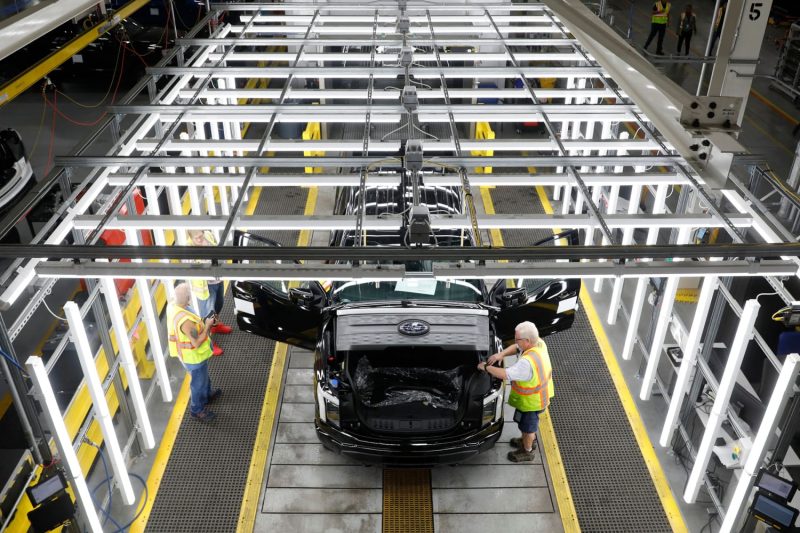Ford Delays New EV Plant and Cancels Electric Three-Row SUV as It Shifts Strategy
The automotive industry is experiencing a significant shift towards electric vehicles as car manufacturers globally seek to reduce their carbon footprint and meet stringent emissions regulations. Ford, a long-standing player in the industry, had previously announced plans to invest heavily in electric vehicles, positioning itself for a competitive edge in the emerging EV market. However, recent developments within the company suggest a strategic shift that has led to the delay of a new EV plant and the cancellation of an electric three-row SUV.
Ford’s decision to delay the construction of its new electric vehicle plant in Tennessee comes as a surprise to many industry observers. The company had initially planned to commence production at the plant in 2025, with an estimated investment of over $5.6 billion. This facility was expected to play a key role in Ford’s electrification strategy, enabling the company to ramp up production of electric vehicles to meet the growing demand in the market.
The decision to delay the new plant raises questions about Ford’s commitment to electric vehicles and its ability to compete effectively in the EV space. With other major automakers making significant strides in the development and production of electric vehicles, Ford risks falling behind in this fast-evolving market. The delay in the new plant could also impact Ford’s overall EV production timeline, potentially pushing back the launch of new electric models.
In a related move, Ford also announced the cancellation of an electric three-row SUV that was set to be produced at its Cuautitlan plant in Mexico. The decision to scrap this model highlights the company’s recalibration of its product lineup and focus on more profitable segments within the electric vehicle market. While details surrounding the cancellation are scarce, it is clear that Ford is reevaluating its product portfolio to ensure long-term success in the evolving automotive landscape.
The shift in strategy at Ford underscores the challenges and complexities faced by traditional automakers in transitioning to electric vehicles. While the company’s initial enthusiasm for EVs was evident in its ambitious plans for new plants and product launches, external factors such as supply chain issues, regulatory uncertainties, and shifting consumer preferences may have prompted a reassessment of its approach. By delaying the new EV plant and canceling the three-row SUV, Ford is signaling a pivot towards a more deliberate and calculated strategy in the electric vehicle market.
As Ford navigates this strategic shift, it will be crucial for the company to maintain a balance between innovation, cost efficiency, and market demand. The decision to delay the new EV plant and cancel the electric three-row SUV represents a step back in Ford’s electrification journey, but it also presents an opportunity for the company to refocus its efforts and realign its priorities in a rapidly changing industry. Ultimately, how Ford adapts to the evolving landscape of electric vehicles will determine its success in the future of mobility.
